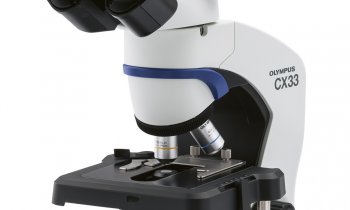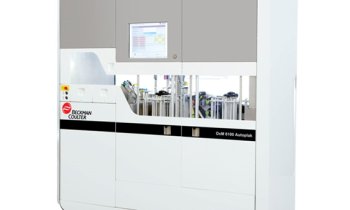GE to expand in fast-growing Life Sciences sectors
Acquisition of strategic assets from Thermo Fisher Scientific
GE and Thermo Fisher Scientific announced yesterday that they have entered into an agreement for GE Healthcare to acquire Thermo Fisher’s HyClone cell culture media and sera, and gene modulation and magnetic beads businesses for approximately $1.06 billion.

The acquisition will allow GE to expand its offering of technologies for the discovery and manufacturing of innovative new medicines, vaccines and diagnostics in its growing Life Sciences business.
The complementary product offerings and strong strategic fit of the acquired businesses will enable GE Healthcare to expand and accelerate the development of innovative “end-to-end” technologies for cell biology research, cell therapy and for the manufacture of innovative biological medicines and vaccines. The acquisition is consistent with GE’s strategy to invest in high-technology, innovative businesses that deliver strong top-line growth and expanded margins. GE’s acquisition of the businesses, which is subject to regulatory approvals, is anticipated to close in the first part of 2014.
GE Healthcare’s century of leadership in medical diagnostic technology includes its $4 billion Life Sciences business, which delivers innovative products and services for the fast-growing diagnostics, research and biopharmaceutical manufacturing sectors.
John Dineen, President and CEO, GE Healthcare said, “Life Sciences is one of our strongest and fastest-growing business areas, driven by the world’s demand for improved diagnostics and new, safer medicines. Combining GE’s engineering expertise with our capabilities in life sciences is already bringing great benefits to industry, research and patients. This deal makes a good business even better and will help us realize our vision of bringing better healthcare to more people at lower cost.”
Cell culture plays a key role in manufacturing medicines to treat diseases such as cancer and rheumatoid arthritis, as well as a new generation of vaccines. Thermo Fisher’s well-respected HyClone cell culture media and sera products are highly complementary to GE Healthcare’s established technologies for cell biology research and biopharmaceutical manufacturing, enabling GE to offer its customers a substantially wider range of technologies and services.
GE Healthcare will also acquire Thermo Fisher’s gene modulation technologies, which strongly complement GE’s established technologies for drug discovery research, and the innovative Sera-Mag™ magnetic beads product line, which extends GE’s existing technologies in protein analysis and medical diagnostics.
Kieran Murphy, President and CEO of GE Healthcare’s Life Sciences division said, “We look forward to the HyClone cell culture and other businesses joining the GE family. They are a great fit with our key areas of focus, and bring exciting new technologies, enhanced manufacturing capabilities as well as a great group of talented people to help grow our business.”
“In addition to providing us with new approaches to drug discovery and biomedical research,” Murphy said, “this acquisition is a significant step forward for our customers in biopharmaceutical manufacturing. They will benefit immediately from an expanded range of “start-to-finish” technologies that will help them improve product yields and reduce time-to-market. By expanding our production facilities to three continents, we will be able to offer the biopharmaceutical industry greater confidence in the security of supply of cell culture media and sera, a key part of their production process.”
The three acquired businesses generated combined annual revenues of approximately $250 million in 2013.
07.01.2014











